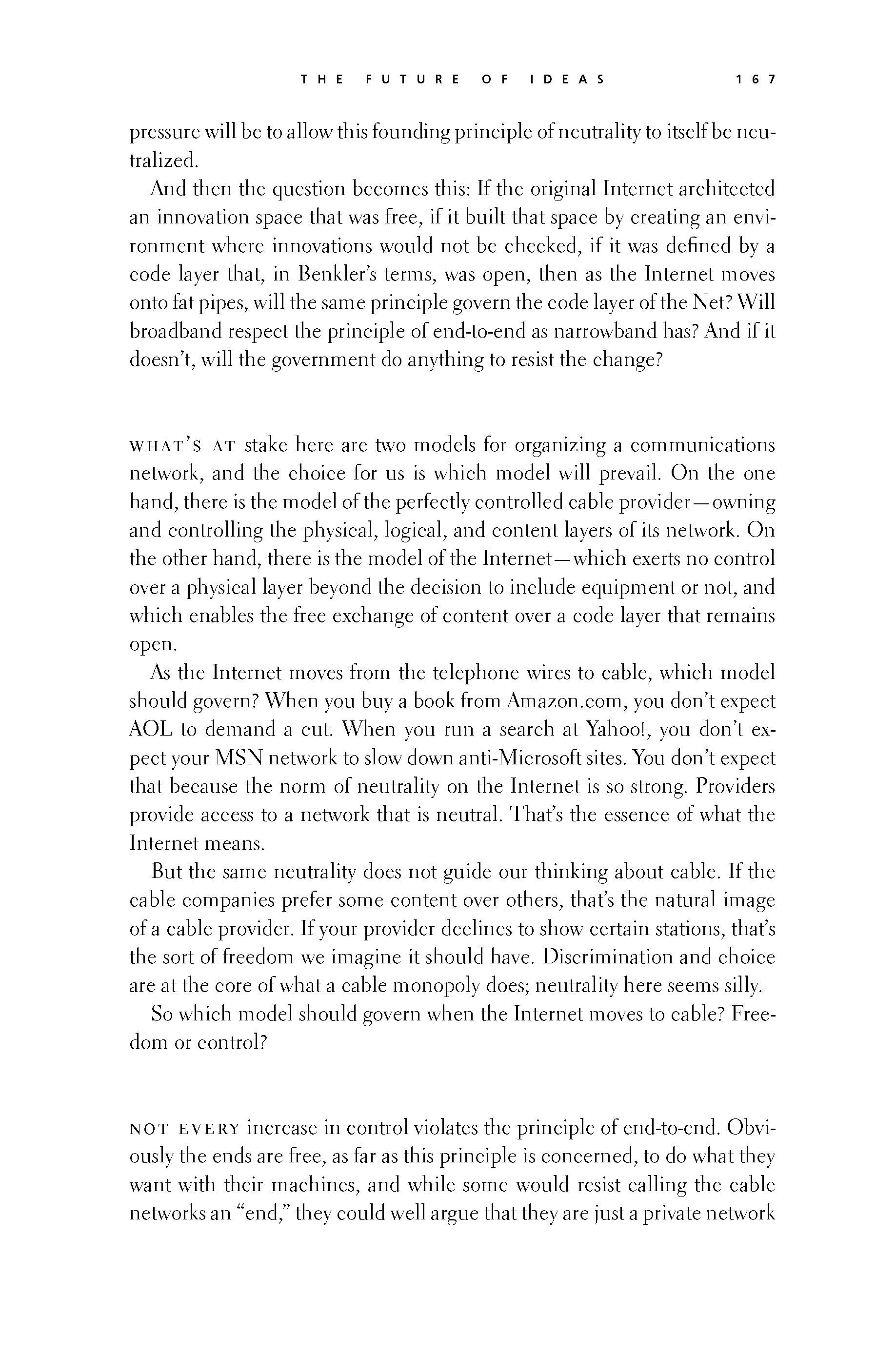 p166 _
-chap- _
toc-1 _
p167w _
toc-2 _
+chap+ _
p168
p166 _
-chap- _
toc-1 _
p167w _
toc-2 _
+chap+ _
p168
pressure will be to allow this founding principle of neutrality to itself be neu-
tralized.
And then the question becomes this: If the original Internet architected
an innovation space that was free, if it built that space by creating an envi-
ronment where innovations would not be checked, if it was defined by a
code layer that, in Benkler's terms, was open, then as the Internet moves
onto fat pipes, will the same principle govern the code layer of the Net? Will
broadband respect the principle of end-to-end as narrowband has? And if it
doesn't, will the government do anything to resist the change?
///\\\
What's at stake here are two models for organizing a communications
network, and the choice for us is which model will prevail. On the one
hand, there is the model of the perfectly controlled cable provider -- owning
and controlling the physical, logical, and content layers of its network. On
the other hand, there is the model of the Internet -- which exerts no control
over a physical layer beyond the decision to include equipment or not, and
which enables the free exchange of content over a code layer that remains
open.
As the Internet moves from the telephone wires to cable, which model
should govern? When you buy a book from Amazon.com, you don't expect
AOL to demand a cut. When you run a search at Yahoo!, you don't ex-
pect your MSN network to slow down anti-Microsoft sites. You don't expect
that because the norm of neutrality on the Internet is so strong. Providers
provide access to a network that is neutral. That's the essence of what the
Internet means.
But the same neutrality does not guide our thinking about cable. If the
cable companies prefer some content over others, that's the natural image
of a cable provider. If your provider declines to show certain stations, that's
the sort of freedom we imagine it should have. Discrimination and choice
are at the core of what a cable monopoly does; neutrality here seems silly.
So which model should govern when the Internet moves to cable? Free-
dom or control?
///\\\
Not every increase in control violates the principle of end-to-end. Obvi-
ously the ends are free, as far as this principle is concerned, to do what they
want with their machines, and while some would resist calling the cable
networks an "end," they could well argue that they are just a private network
[[167]]
p166 _
-chap- _
toc-1 _
p167w _
toc-2 _
+chap+ _
p168